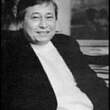Like you'd understand, anyway: stories
Description
More Details
9780307487520
Also in this Series
Published Reviews
Publisher's Weekly Review
Following the novel Project X and Love and Hydrogen: New and Selected Stories, Shepard?s new collection takes in landscapes as diverse as 1986 Chernobyl in "The Zero Meter Diving Team," to 1840s down under in "The First South Central Australian Expedition." It?s clear that Shepard has done his research in these 11 first-person tales-be it on Alaskan tidal waves for a story about a man contemplating a vasectomy while reliving a childhood tragedy in "Pleasure Boating in Lituya Bay" or Sherpas and the Chang Tang tundra in "Ancestral Legacies", and his precision gives the poignant longing and human emotion of the stories room to resonate. Save for "Eros 7," about a lovelorn Soviet Cosmonaut set during the US/Russian space race, all are the stories are told by men, often with few female characters. At the core, each is essentially an exploration of familial relationships between men-be it the ill-fated trio of brothers working at the nuclear reactor or the unhappy adolescent camper calling home to find out about his mentally disturbed younger brother in "Courtesy for Beginners." Shepard?s far-flung explorations get very close to the male heart. (Sept.) Copyright 2007 Reed Business Information.
Library Journal Review
In his latest offering, veteran fiction writer Shepard (Project X) poses some interesting questions about the very nature of short fiction. The 11 tightly written pieces often take place in a historical setting. But whether they feature Chernobyl on the eve of the meltdown or a track into the inhospitable Australian interior, these stories generate tension that revolves around the movements of their characters. A time-honored tradition of fiction writing is that the lead paragraph must be among the strongest, and several pieces here feature openings that could stand as short stories in their own right. But rather than building tension to a combustible crescendo or opting for the open-ended terminus of the postmodern novel, Shepard gently diffuses the energy he's taken such pains to accumulate. In this sense, his fiction admits a modern truth: that the buildup contributes more to a story than its eventual "resolution." Recommended for public and academic libraries.-Chris Pusateri, Jefferson Cty. P.L., Lakewood, CO (c) Copyright 2010. Library Journals LLC, a wholly owned subsidiary of Media Source, Inc. No redistribution permitted.
Kirkus Book Review
So varied in tone, theme, voice and setting are these stories that they might've been written by a hydra. A hydra, that is, surfeited with remarkable wit, compassion and the gift of gab. The Great Australian Desert, Chernobyl, Beaumont, Texas, the plain of Marathon and "the roof of the world," Tibet's Kunlun Mountains and the Trans-Himalayas--Shepard (Project X, 2004, etc.) seems to have been everywhere. Readers will feel that they have too after a saturation in his terrific third collection. As Boris Yakovlevich Prushinsky, engineer of the Depatment of Nuclear Energy in "The Zero Meter Diving Team," with the head-in-the-sand finesse of a Soviet functionary, oversees a boo-boo that wastes Mother Russia (kids getting mouth cancer, deaths in the untold thousands), we're given a stern, black-humor lesson: "Science requires victims." In "Proto-Scorpions of the Silurian," a seventh grader, home sick from school, watching "Jonathan Winters on Merv Griffin, doing his improv thing with a stick," learns another kind of heartbreak, playing with his brother stricken with a strange disease and hair "falling out because of the medication." Felicius Victor, son of the centurion Annius Equestor, guards Hadrian's Wall in the province of Britannia and has a jeweler's squint for detail, telling us about everything from his "small shrine erected to Viradecthis" to his diet (hare, broadbeans, coriander). He's also clear-eyed about conquest: "We make a desolation and we call it peace." In "Sans Farine," Charles-Henri Sanson, aka "the Keystone of the Revolution," wrestles with his conscience during the Reign of Terror as well as "the emptied bran sacks [that] hold the severed heads." Freakishly erudite, Shepard writes fiction that glories in the sheer too-muchness of life--its superabundance of emotion, incident and sensory delight. Virtuoso work. Copyright ©Kirkus Reviews, used with permission.
Library Journal Reviews
In his latest offering, veteran fiction writer Shepard (Project X ) poses some interesting questions about the very nature of short fiction. The 11 tightly written pieces often take place in a historical setting. But whether they feature Chernobyl on the eve of the meltdown or a track into the inhospitable Australian interior, these stories generate tension that revolves around the movements of their characters. A time-honored tradition of fiction writing is that the lead paragraph must be among the strongest, and several pieces here feature openings that could stand as short stories in their own right. But rather than building tension to a combustible crescendo or opting for the open-ended terminus of the postmodern novel, Shepard gently diffuses the energy he's taken such pains to accumulate. In this sense, his fiction admits a modern truth: that the buildup contributes more to a story than its eventual "resolution." Recommended for public and academic libraries.—Chris Pusateri, Jefferson Cty. P.L., Lakewood, CO
[Page 131]. Copyright 2007 Reed Business Information.Publishers Weekly Reviews
Following the novel Project X and Love and Hydrogen: New and Selected Stories , Shepard's new collection takes in landscapes as diverse as 1986 Chernobyl in "The Zero Meter Diving Team," to 1840s down under in "The First South Central Australian Expedition." It's clear that Shepard has done his research in these 11 first-person tales—be it on Alaskan tidal waves for a story about a man contemplating a vasectomy while reliving a childhood tragedy in "Pleasure Boating in Lituya Bay," or Sherpas and the Chang Tang tundra in "Ancestral Legacies," and his precision gives the poignant longing and human emotion of the stories room to resonate. Save for "Eros 7," about a lovelorn Soviet cosmonaut and set during the U.S.-Russia space race, all the stories are told by men, often with few female characters. At the core, each is essentially an exploration of familial relationships between men—be it the ill-fated trio of brothers working at the nuclear reactor or the unhappy adolescent camper calling home to find out about his mentally disturbed younger brother in "Courtesy for Beginners." Shepard's far-flung explorations get very close to the male heart. (Sept.)
[Page 23]. Copyright 2007 Reed Business Information.PW Annex Reviews
Following the novel Project X and Love and Hydrogen: New and Selected Stories, Shepard's new collection takes in landscapes as diverse as 1986 Chernobyl in "The Zero Meter Diving Team," to 1840s down under in "The First South Central Australian Expedition." It's clear that Shepard has done his research in these 11 first-person tales-be it on Alaskan tidal waves for a story about a man contemplating a vasectomy while reliving a childhood tragedy in "Pleasure Boating in Lituya Bay" or Sherpas and the Chang Tang tundra in "Ancestral Legacies", and his precision gives the poignant longing and human emotion of the stories room to resonate. Save for "Eros 7," about a lovelorn Soviet Cosmonaut set during the US/Russian space race, all are the stories are told by men, often with few female characters. At the core, each is essentially an exploration of familial relationships between men-be it the ill-fated trio of brothers working at the nuclear reactor or the unhappy adolescent camper calling home to find out about his mentally disturbed younger brother in "Courtesy for Beginners." Shepard's far-flung explorations get very close to the male heart. (Sept.)
































